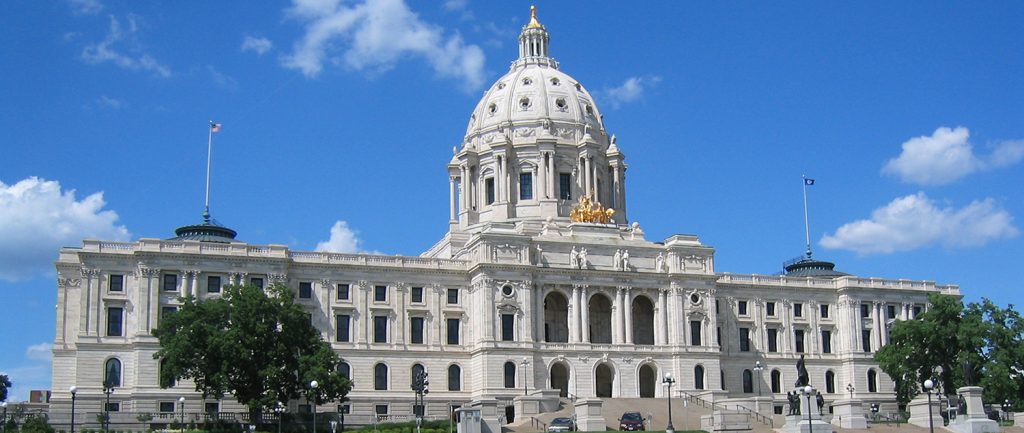The Minnesota Soybean Growers Association (MSGA) appreciates the Trump administration recognizing that the nation’s soybean growers are bearing the brunt of a prolonged trade war that has disrupted soybean markets and caused extensive financial stress to farmers.
But the clock is ticking.
“Family farms are struggling throughout Minnesota, and the trade war with China continues to add to the pain,” says MSGA Vice President Jamie Beyer. “At the end of the day, farmers want trade, not aid.”
On Thursday, the U.S. Department of Agriculture announced a second round of direct aid to farmers. Though exact details or rates are unclear, President Trump has authorized USDA to provide up to $16 billion in programs, which is in line with the estimated impacts of retaliatory tariffs on U.S. agricultural goods and other trade disruptions. These programs aim to assist agricultural producers while the Trump administration works toward a deal with China.
“Our team at USDA reflected on what worked well and gathered feedback on last year’s program to make this one even stronger and more effective for farmers,” Sec. Perdue said. “Our farmers work hard, are the most productive in the world, and we aim to match their enthusiasm and patriotism as we support them.”
Representatives from the American Soybean Association attended a briefing Thursday afternoon at the White House with the president.
The relief package will include:
A Market Facilitation Program (MFP) for 2019, authorized under the Commodity Credit Corporation (CCC) Charter Act and administered by the Farm Service Agency (FSA), will provide $14.5 billion in direct payments to producers. Rates by commodity will be disclosed at a later date.
The payment rates will be based on USDA’s calculation of the impact of the ongoing trade war on each county. USDA did not release the county rates. Under the 2018 payment plan, there were individual payment rates for production of each commodity.
Those per acre payments are not dependent on which of those crops are planted in 2019, and therefore will not distort planting decisions. Moreover, total payment-eligible plantings cannot exceed total 2018 plantings.
Payments will be made in up to three tranches, with the second and third tranches evaluated as market conditions and trade opportunities dictate. The first tranche will begin in late July or early August, as soon as practical after Farm Service Agency crop reporting is completed by July 15. If conditions warrant, the second and third tranches will be made in November and early January.
Additional payments will be made to producers of some specialty crops — fruits, vegetables and tree nuts — and for pork and dairy products.
CCC Charter Act authority will also be used to implement a $1.4 billion Food Purchase and Distribution Program (FPDP) through the Agricultural Marketing Service (AMS) to purchase surplus commodities affected by trade retaliation such as fruits, vegetables, some processed foods, beef, pork, lamb, poultry, and milk for distribution by the Food and Nutrition Service (FNS) to food banks, schools, and other outlets serving low-income individuals.
Finally, the CCC will use its Charter Act authority for $100 million to be issued through the Agricultural Trade Promotion Program (ATP) administered by the Foreign Agriculture Service (FAS) to assist in developing new export markets on behalf of producers.
MSGA Executive Director Joe Smentek lamented the losses in the Chinese market. Prior to when the trade war began in 2018, China purchased 61 percent of total U.S. soybean exports, equating to nearly $14 billion annually and more than 30 percent of overall U.S. soybean production. Soybeans are Minnesota’s top export, equating to $2 billion annually. Before a 25 percent tariff was enacted on U.S. soybeans, roughly 1 in 3 rows of soybeans in Minnesota went to China.
“This aid is unfortunately what our farmers needed, but it’s in no way what they want,” Smentek says. “We want our markets that we’ve spent 40 years and countless resources building. This aid helps our family farmers in the short term, but in the long term, we need trade deals.”
Tom Slunecka, CEO of the Minnesota Soybean Research & Promotion Council (MSR&PC), which oversees the soybean checkoff in the state, says the nearly 30-year old checkoff program has languished during the year-long trade dispute.
“This relief is important to farmers, but if the market doesn’t replace its value, this could be devastating to the checkoff organization,” he says. “The soybean checkoff has invested in research programs that have changed the face of soybean production in our region. These programs and the contractors that provide services will remain in jeopardy until market prices normalize.”
MSGA will continue advocating the administration to rapidly conclude negotiations with China that include immediately lifting Section 301 tariffs by the U.S. in exchange for China removing its retaliatory 25 percent tariff on U.S. soybeans.
“We are disheartened the situation has come to this,” Smentek says. “This relief package seems like a Band-Aid that once again fails to address long-term solutions.”





